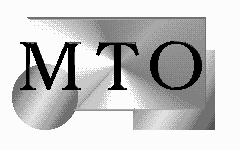
Music Theory Online
The Online Journal of the Society for Music
Theory
Copyright � 1996 Society for Music Theory
Volume 2, Number 6 September, 1996 ISSN 1067-3040
General Editor Editorial Board
Lee Rothfarb
(UC Santa Barbara) David Headlam (Eastman School of Music)
Justin London (Carleton College)
Ann McNamee (Swarthmore College)
Reviews Editor Consulting Editors
Brian Alegant Bo Alphonce Thomas Mathiesen
(McGill University) Jonathan Bernard Benito Rivera
John Clough John Rothgeb
Nicholas Cook Arvid Vollsnes
Allen Forte Robert Wason
Marianne Kielian-Gilbert Gary Wittlich
Stephen Hinton
MTO Correspondents
Per Broman, Sweden Nicolas Meeus, Belgium, France
Peter Castine, Germany Ken-ichi Sakakibara, Japan
Wai-ling Cheong, Hong Kong Roberto Saltini, Brazil
Geoffrey Chew, England Michiel Schuijer, Holland
Gerold W. Gruber, Austria Uwe Seifert, Germany
Henry Klumpenhouwer, Canada Arvid Vollsnes, Norway
Manager Editorial Assistants Music Example Designer
Robert Judd Cindy Nicholson William Loewe
Ralph Steffen
Nicholas Blanchard
All queries to the MTO General Editor or to the MTO Manager
![[all TOCs]](../../gifs/alltocs.gif)
![[MTO Home]](../../gifs/mtoh.gif)
![[SMT Home]](../../gifs/smth.gif)
![[MTO Talk]](../../gifs/mtotalk.gif)
![[Hypermail]](../../gifs/hypermail.gif)
![[Join SMT]](../../gifs/join-smt.gif)
TABLE OF CONTENTS
1. Target Article
- Victor Grauer, Toward a Unified
Theory of the Arts
2. Commentaries
- Margaret Bent, Diatonic ficta
Revisited: Josquin's Ave Maria in Context
- Jonathan Walker, Intonational Injustice:
A Defense of Just Intonation in the Performance of Renaissance Polyphony
3. Reviews
- John W. Schaffer,
Review of Peter Castine's Set Theory Objects: Abstractions for Computer-Aided
Analysis and Composition of Serial and Atonal Music
4. Music Theory International
- Per F. Broman, Report from the Three Seminars on Contemporary Music
with Connection to the ISCM World Music Days in Copenhagen,
1996.
- Guigue, Didier. "Une
�tude "pour les Sonorit�s Oppos�es": Pour une analyse "orient�e objets" de l'oeuvre pour
piano de Debussy et de la musique du 20� si�cle." Ecole des Hautes Etudes en Sciences
Sociales, Paris, 1996.
- Hussey, William Gregory.
"Compositional Modeling and Quotation in the Works of Johannes Brahms: An Application of
Harold Bloom's Theory of Influence to Music." University of Texas at Austin, 1996.
- Lowe, Bethany L. "Performance
as Reception: The Symphonies of Sibelius in Britain 1930-1965." University of Southampton,
1998 (projected).
- McDonnell, Donald R.
"Roger Sessions' Symphony No. 3, First Movement: Form, Hexachordal Polarity, and Harmonic
Language (and) Nexus/Dreamscape for Chamber Ensemble. (Original Composition)," Brandeis
University, 1994.
- Raickovich, Milos.
"Einstein on the Beach by Philip Glass: A Musical Analysis. City University of New York,
1994.
- Robison, Brian.
"Carmen Arcadiae Mechanicae Perpetuum: Toward a Methodology for Analyzing
Harrison Birtwistle's Music Since 1977," (working title) Cornell University, 1997.
- University of Chicago Press
- Ingrid Monson, Saying Something:
Jazz Improvisation and Interaction
- Giuseppe Verdi, La traviata, ed.
Fabrizio della Seta
- Katherine Bergeron and Philip V.
Bohlman, eds., Disciplining Music
- Oxford University Press
- David R. Beveridge, ed., Rethinking Dvorak: Views from Five Countries
- George Pratt, The Dynamics of Harmony: Principles and Practice
- Michael Burden, ed., Performing the
Music of Henry Purcell
- Peter Walls, Music in the English
Courtly Masque, 1604-1640
- Konrad Koster, Mozart: A Musical Biography, trans. Mary Whittall
- Robert L. Kendrick, Celestial Sirens:
Nuns and Their Music in Early Modern Milan
- Rob C. Wegman, Born for the Muses:
The Life and Masses of Jacob Obrecht
- Bernard Harrison, Haydn's Keyboard
Music: Studies in Performance Practice
- Peter Evans, The Music of Benjamin
Britten, rev. ed.
- Bryan Gilliam, Richard Strauss's
Elektra
- Jane L. Baldauf-Berdes, Women
Musicians of Venice: Musical Foundations, 1525-1855
- Warren Darcy, Wagner's Das Rheingold
- Elizabeth Norman McKay, Franz Schubert:
A Biography
- Jonathan Dunsby, Performing Music:
Shared Concerns
- Editor's Message
Copyright Statement
[1] Music Theory Online (MTO) as a whole is Copyright
� 1996, all rights reserved, by the Society for Music Theory,
which is the owner of the journal. Copyrights for individual items
published in MTO are held by their authors. Items appearing in
MTO may be saved and stored in electronic or paper form, and
may be shared among individuals for purposes of scholarly research or
discussion, but may not be republished in any form, electronic
or print, without prior, written permission from the author(s), and
advance notification of the editors of MTO.
[2] Any redistributed form of items published in MTO must
include the following information in a form appropriate to
the medium in which the items are to appear:
This item appeared in Music Theory Online
in [VOLUME #, ISSUE #] on [DAY/MONTH/YEAR].
It was authored by [FULL NAME, EMAIL ADDRESS],
with whose written permission it is reprinted
here.
[3] Libraries may archive issues of MTO in electronic or paper
form for public access so long as each issue is stored in its
entirety, and no access fee is charged. Exceptions to these
requirements must be approved in writing by the editors of MTO,
who will act in accordance with the decisions of the Society for
Music Theory.
This page prepared by
Lee A. Rothfarb, General Editor
9/18/96

